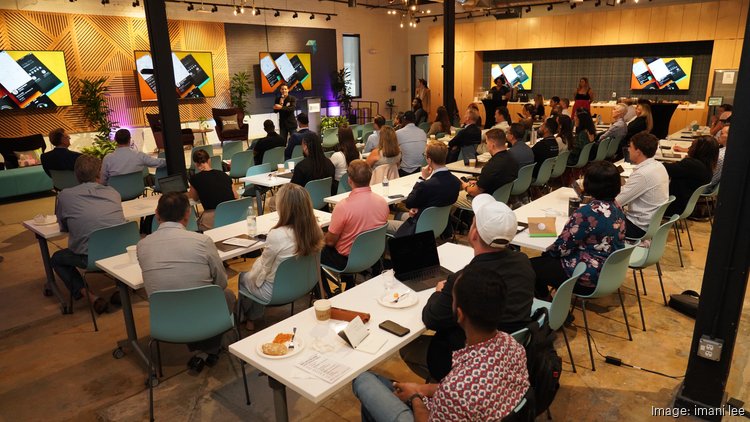
For April Caldwell, founder of Tampa-based Fayven, the journey to get funding has been an uphill climb — a story not uncommon for the region’s entrepreneurs.
Caldwell secured $100,000 through grants and pitch wins, participated in regional accelerator programs and caught the attention of Mark Cuban’s investment team. Yet she’s still bootstrapping her app from personal funds.
“If you know anything about tech development, it’s very expensive,” Caldwell said. “Keeping it afloat has really been on me … founders don’t normally have the capacity to keep their own business alive that long without investment.”
Founders like Caldwell, Sera Lavelle of Bea Better Eating and John Licato of Actualization.AI are navigating a startup ecosystem rich in accelerators and mentorship, but still maturing when it comes to early-stage capital.
That’s one takeaway from Embarc Collective’s inaugural Angel Investing Summit, co-hosted by Cincinnati-based Queen City Angels on April 29, which aimed to begin tackling this gap. Startups were able to refine their products, learn what investors look for, connect with angels and sharpen pitch strategies.
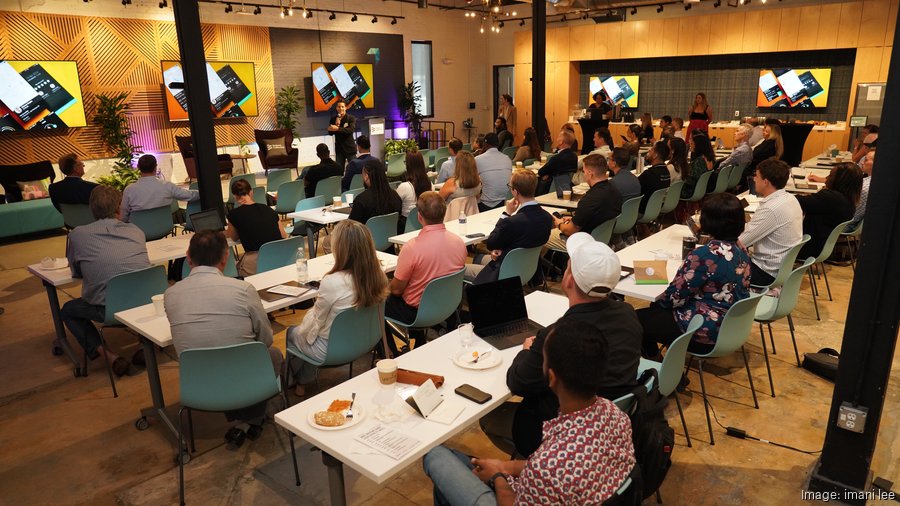
“All the [venture capitalists] want more traction,” Lavelle said. “But to get traction, I need to build. And to build, I need capital. That’s why I’m only just now pitching to angels — literally starting this month.”
She believes her mission — challenging toxic diet culture and helping people manage cravings and emotional eating — is often dismissed and could resonate more with angel investors.
“People say Ozempic solves this, so they’re not going to invest, and I have to educate them: Ozempic is a $30 billion market with a huge drop-off rate,” Lavelle said. “My app actually addresses cravings. That’s not niche — that’s a market.”
Balancing ownership and outside capital
Capital can be both a lifeline and a complication.
“I’ve heard how things shift once you get that first check — how you start prioritizing investor expectations over customer needs. It’s a balance,” Caldwell said. “But even a little investment would help us start addressing bigger opportunities.”
With a background in academia, Licato’s learning curve as a founder has been steep in this environment.
“You have to understand what investors care about. And nobody teaches you that,” Licato said. “Resources for understanding VCs are everywhere, but understanding how [they] think? That’s niche — and vital.”
Licato’s startup has been grant-funded, but is now opening a pre-seed round as their federal funding winds down in August.
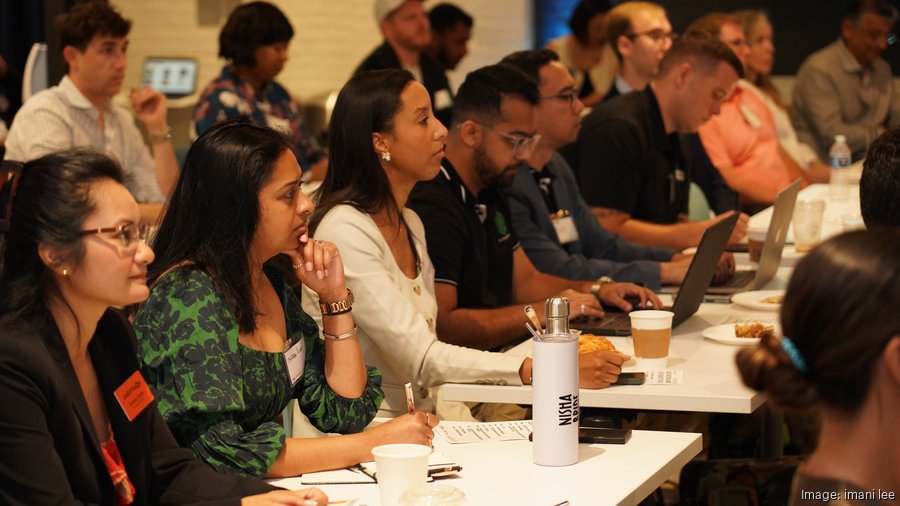
Timing the ask — and surviving the gap
For Tenex.AI founder and CEO Eric Foster, the game is all about timing.
“We’re hearing a lot of founders fall into the ‘valley of death,’” Foster said, referring to the gap between seed and Series A. “They’ve raised seed capital but haven’t hit the metrics to raise more — and can’t hit those metrics without more funding.”
Tenex is bucking that trend. Four months out of stealth, the startup, backed by Silicon Valley investor Andreessen Horowitz or a16Z, has exceeded its metrics and started raising its Series A.
“We’re in hyper-growth mode,” Foster said, “and basically will have achieved our Series A milestones in one quarter of operations.”
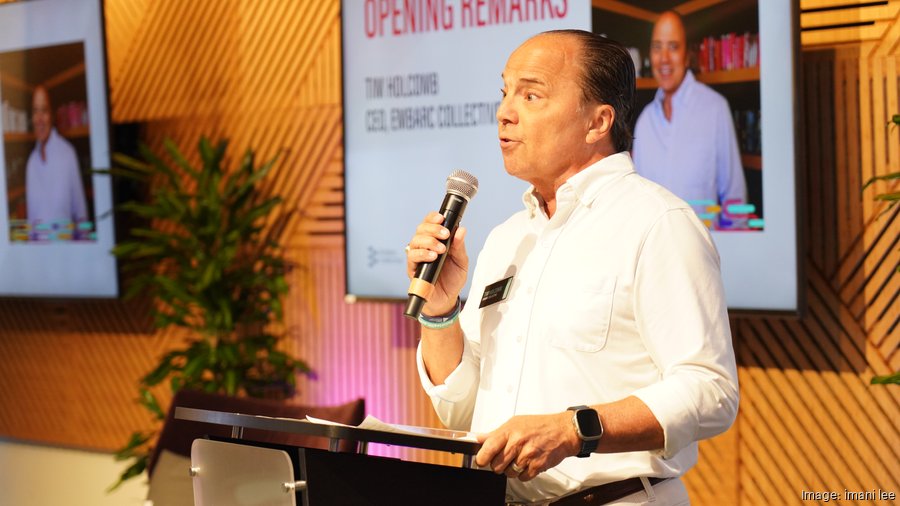
Embarc’s summit was open to early-stage startups statewide, and founders like Licato and Caldwell pitched. It’s the start of similar programming that will follow in the future, according to Tim Holcomb, CEO of Embarc Collective. But is the region ready to fund its own?
“There’s still a maturing process happening in the ecosystem,” Holcomb said. “Part of this lies on the shoulders of founders. It’s easy to get comfortable when [they’re] in a room working on [their] solution … but it’s really hard to engage one-on-one with an investor, knowing that investor is judging just about everything that comes out.”
Building a stronger local funding culture
Tony Shipley, chair and co-founder of Queen City Angels, said that was clear in Tampa, just like it was when he started his angel group in Ohio decades ago.
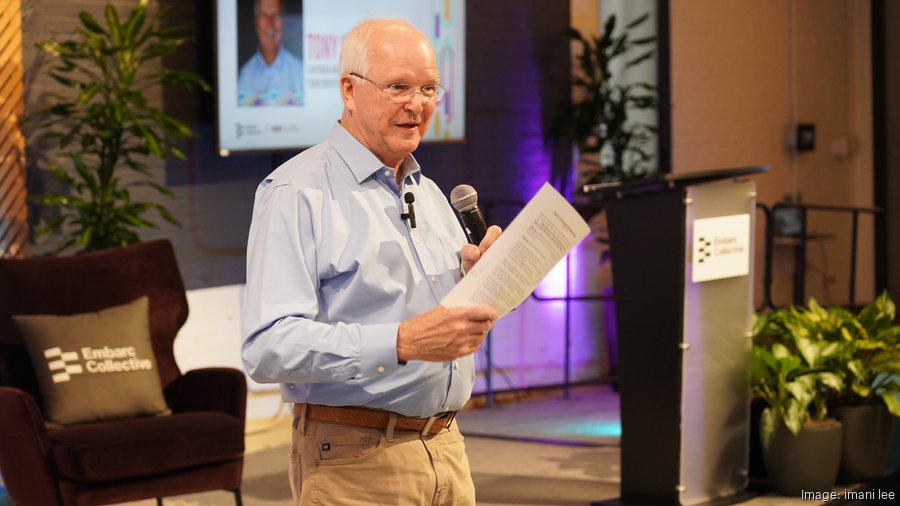
“In Florida, you’ve got a number of established angel groups, but if you look at the continuum of capital for an entrepreneur, it’s the friends and family [round], so I encourage people to take that step [first],” Shipley said.
He also said one funding round is never enough. That’s where Tampa’s still-developing investor base shows its growing pains. Despite a strong regional startup pipeline, outside capital — like a16Z’s backing of Tenex — still dominates.
For the over 250 startups supported by Embarc since its inception, founders have collectively raised nearly $600 million in angel, venture and growth equity. But over 60% of that capital came from outside Florida, according to Holcomb. He said the local investor community is enthusiastic and increasingly collaborative, but it still hasn’t fully leaned in.
“That’s good news, bad news,” Holcomb said. “It means our founders are competitive. But it also means we’re not doing enough to fund them locally. In a state with the third-largest population and the most high-net-worth individuals, that shouldn’t be the case.”
